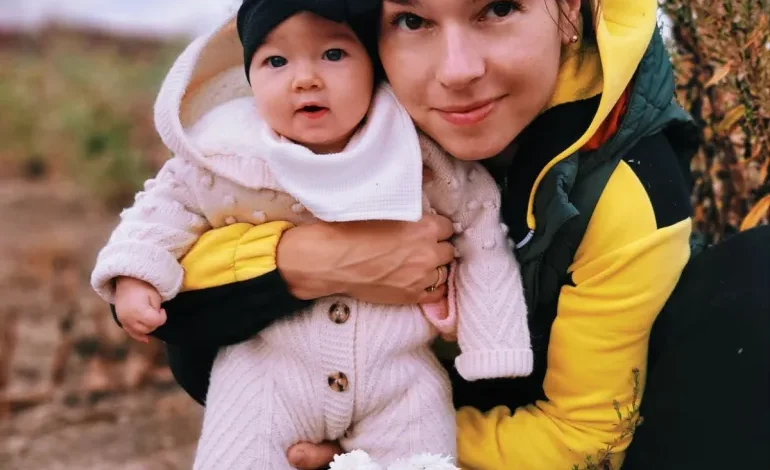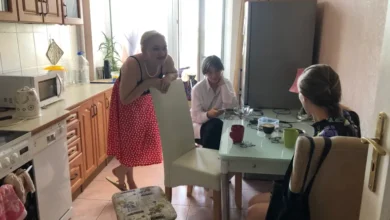Despite risks, hundreds of women return to wartime Ukraine to give birth

Tamara Zaiva, a 35-year-old veterinarian, fled Ukraine when Russia launched its full-scale invasion in February 2022.
She travelled with her five-year-old son and settled in Poland, where her husband worked.
But 18 months later, and 22 weeks pregnant, Zaiva travelled back to Odesa despite the risks so that she could give birth in her homeland.
“Because her new life depended on it,” said Zaiva, clutching her newborn girl, who stirred momentarily before dozing off again on her shoulder.
Due to a misunderstanding caused by language barriers, she thought her daughter had Down’s syndrome, and feared that she would be unable to afford expensive testing.
“I really wanted to go home to see my doctor,” she said.
Her baby was born five months ago at a hospital in Ukraine’s southwest, weighing 3.3kg at 40 weeks.
Zaiva said she decided to return to her war-torn country from the Polish port city Gdynia because she did not have help in navigating a health system that felt foreign to her.
Her son recently started school in Ukraine. Nevertheless, Zaiva keeps the children’s passports close to hand, in case they need to flee again.
Anna, 30, a teacher from Kyiv, also travelled back from Poland to give birth.
She had fled the war in the early days of her pregnancy “because I understood that it’s not safe in Ukraine”.
But she found patient waiting times in Poland were long and said the level of care was insufficient.
“It was very difficult,” she said.
She is due in January.
“If the (safety) situation changes, I will think about going abroad with the newborn.”
The two women are among hundreds who have returned to wartime Ukraine while pregnant, citing shortcomings in maternity care in host countries, according to local NGOs and research by the New York-headquartered Center for Reproductive Rights (CRR).
“Because of the barriers that women face in these countries, it’s often easier for them to go back to Ukraine,” Leah Hoctor, CRR’s European leader, told Al Jazeera.
Some reasons are specific to refugees, such as language barriers and information shortfalls, while others are structural, including a lack of resources or funds.
“Many of the interviewees pointed out that the standard of care was much lower (than in Ukraine),” said Hoctor.
In all four countries CRR studied – Hungary, Romania, Slovakia and Poland – NGOs have stepped up to help women.
“It’s really easy to get lost in this system, refugees are expected to know their way without orientation,” said Anna Ivanyi, from Emma, a women’s association in Hungary.
Emma volunteers accompany women to their appointments, sometimes to protect Ukrainians from “the hostility” of institutions.
Even though healthcare for refugees is state-funded, some doctors demand payment or refuse to treat Ukrainians, said Carmen Radu, advocacy officer at the Romanian Independent Midwives Association.










